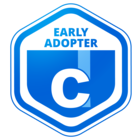Recently I discovered a unique element to how our course URLs and page URLs work within the platform. I’m not a Google Analytics wiz but this definitely has me thinking that there might be something useful for identifying traffic from different sources. I’m curious what all the beautiful brains in the Docebo Community think about this and whether it’s useful or not.
Let’s look at the homepage URL in Docebo University:
https://university.docebo.com/pages/113/homepage
The “page slug” is in bold and is what the system is really using to route a user to a certain page.
/Pages[indicates the function within the lms]/113[Page number]/homepage[Page title]
What I discovered is that if you change the page tittle of the URL, without actually changing the page title within the UI of the LMS, the link will still direct to the original page AND the result will appear in google analytics.
So for instance here’s a link to the homepage with a different page title
https://university.docebo.com/pages/113/CM-1-Homepage
My thinking in the above is that this could be useful if you have a permanent link to a page on a site outside the LMS. The URL would get logged and you would know that “CM-1” is connected to that page where you’ve hosted the URL.



 What do you think?
What do you think? 



Is there something useful in the way these page urls can be customized that might add benefit to tracking?
My thought is that this could be a workaround for how certain parameters are stripped out of the URL when a user logs in.
Anyway, I’d love your thoughts and can’t wait to hear what you have to say.







